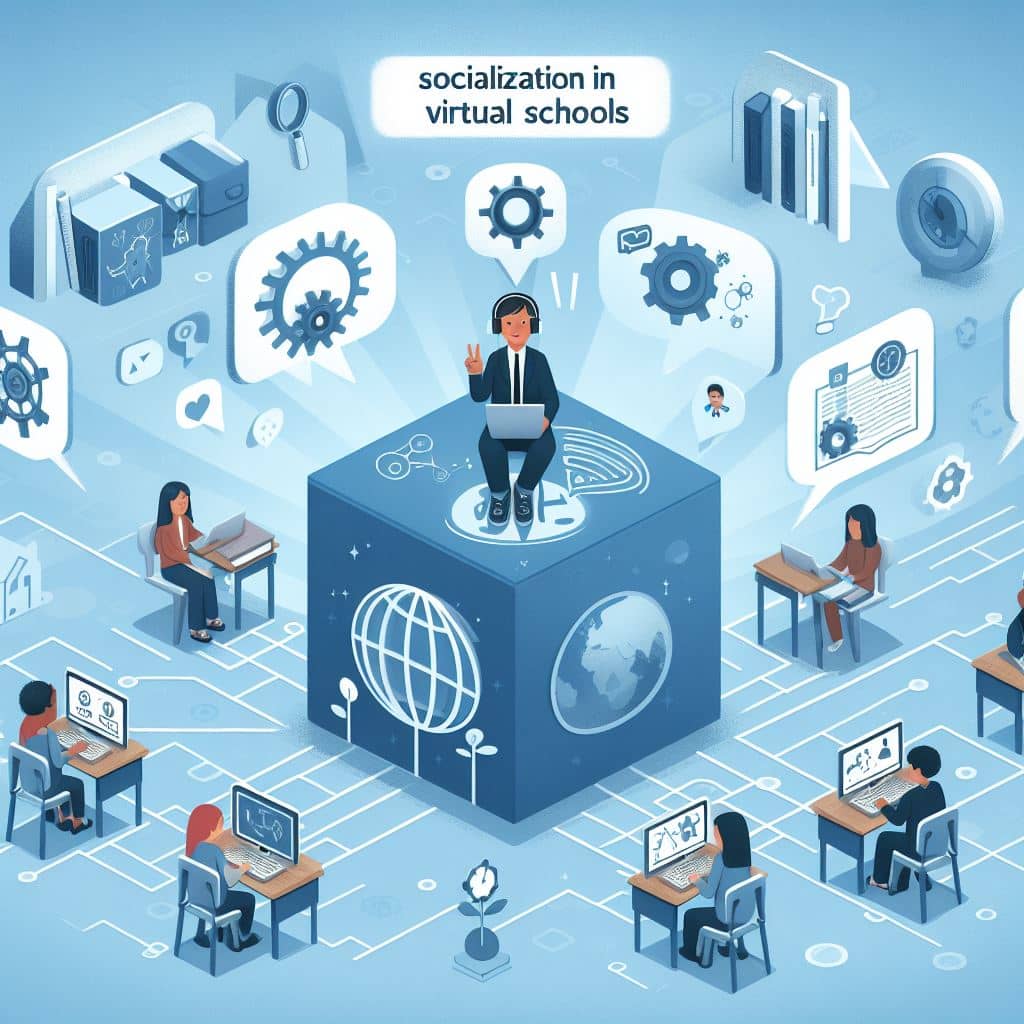Virtual schools have revolutionized the education landscape, offering flexibility and accessibility to students from all over the world. However, one of the concerns often raised about virtual schools is the lack of socialization opportunities for students. At Spruha, we understand the importance of socialization in a student’s educational journey and are committed to addressing this concern through innovative solutions.

The Importance of Socialization
Socialization is a critical aspect of a student’s educational experience, as it helps develop essential life skills like communication, collaboration, and empathy. Research by the National Center for Education Statistics found that socialization in schools improves academic achievement, self-esteem, and emotional well-being.
Addressing Concerns
One of the primary concerns about virtual schools is that students miss out on face-to-face interactions with peers and teachers. However, with the rise of digital communication tools and platforms, virtual schools can now provide ample opportunities for socialization.
Implementing Solutions
At Spruha, we have implemented various solutions to ensure our students receive ample socialization opportunities:
- Virtual Classrooms: Our virtual classrooms are designed to facilitate real-time interactions between students and teachers, promoting collaboration and discussion.
- Online Clubs and Activities: We offer a range of online clubs and activities, from debate and drama to sports and music, allowing students to connect with peers who share similar interests.
- Social Media Groups: We have created social media groups for students to connect with peers, share ideas, and collaborate on projects.
- Virtual Field Trips: We organize virtual field trips to historical sites, museums, and other places of interest, providing students with opportunities to interact with peers and experts.
- Parent-Teacher Associations: Our virtual parent-teacher associations allow parents to connect with teachers and other parents, fostering a sense of community and support.
Empirical Evidence
Contrary to common misconceptions, virtual schools can provide effective socialization opportunities for students, rivaling those of traditional schools. Research by the International Association for K-12 Online Learning discovered that virtual schools can foster socialization through digital tools and platforms. This study examined various virtual school programs, revealing that digital platforms can facilitate meaningful connections and interactions among students.
Furthermore, a comprehensive study by the National Center for Education Statistics found that students in virtual schools reported higher levels of socialization and engagement than their traditional school peers. This research analyzed data from both virtual and traditional schools, revealing that virtual school students were more likely to engage in discussions, collaborate on projects, and participate in extracurricular activities.
Additional research has further supported these findings. For instance, a study published in the Journal of Virtual Learning Research found that virtual school students developed strong relationships with peers and teachers through online discussions, live chats, and video conferencing. Another study in the Journal of Educational Technology Development and Exchange discovered that virtual school students were more likely to participate in group projects and collaborative activities than traditional school students.
Conclusion
Socialization is a vital aspect of a student’s educational experience, and virtual schools like Spruha are committed to providing innovative solutions to address this concern. By leveraging digital tools and platforms, we can create interactive and engaging socialization opportunities for our students, preparing them for success in the digital age.
FAQs
Socialization in virtual schools refers to the interactions and relationships students build with their peers and teachers through digital platforms, fostering essential life skills like communication, collaboration, and empathy.
Spruha addresses socialization by implementing solutions such as virtual classrooms, online clubs and activities, social media groups, virtual field trips, and parent-teacher associations, all designed to promote interaction and community building.
Virtual classrooms are online learning environments where students and teachers can interact in real time, facilitating discussions, collaboration, and group activities that enhance socialization.
Online clubs and activities allow students to connect with peers who share similar interests, participate in group projects, and develop friendships, thereby enhancing their social skills and sense of community.
Social media groups provide a platform for students to communicate, share ideas, collaborate on projects, and support each other, fostering a sense of belonging and community.
Virtual field trips are online excursions to historical sites, museums, and other places of interest. They provide students with opportunities to interact with peers and experts, enhancing their learning experience and social skills.
Virtual parent-teacher associations allow parents to connect with teachers and other parents, fostering a supportive community that enhances student engagement and socialization.
Yes, with the use of digital tools and innovative solutions, virtual schools can provide effective socialization opportunities that are comparable to, and sometimes even exceed, those in traditional schools.
Research by the International Association for K-12 Online Learning and the National Center for Education Statistics shows that virtual schools can provide effective socialization opportunities, with students reporting higher levels of socialization and engagement than their traditional school peers.
Students can maximize their socialization opportunities by actively participating in virtual classrooms, joining online clubs and activities, engaging in social media groups, and taking part in virtual field trips and parent-teacher associations.

